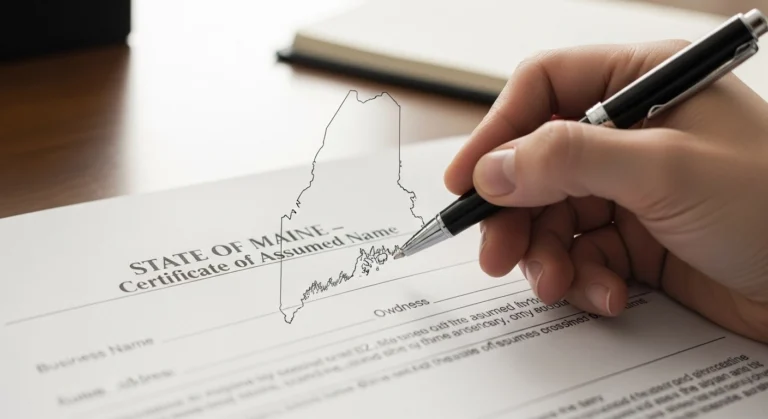Credit repair is improving your credit score by identifying and disputing inaccurate, incomplete, or unverifiable information on your credit reports. You can do this yourself for free or hire a credit repair company to do it on your behalf.
The goal is to ensure your credit history is as fair and accurate as possible, which can lead to an increase in your credit score.
The Importance of a Good Credit Score
A good credit score is a reflection of your financial reliability, and it’s a key factor lenders and other companies use to make decisions. The benefits of a good score are significant and include:
- Lower Interest Rates: You’ll be offered better rates on mortgages, car loans, and credit cards, saving you thousands of dollars over the life of the loan.
- Better Loan Terms: A high score can lead to a wider range of loan options, higher credit limits, and more favorable repayment terms.
- Easier Approvals: It makes it easier to be approved for rental applications, insurance policies, and even certain jobs.
Understanding Your Credit Score and Report
There are mainly five factors that affect your credit score. Credit scores are calculated using a model that weighs different aspects of your financial history. The five key factors in order of importance are:
- Payment History (35%): This is the most significant factor. It’s a record of whether you’ve paid your bills on time. Late payments, defaults, and bankruptcies have a strong negative impact.
- Amounts Owed / Credit Utilization (30%): This measures how much of your available credit you’re using. A lower credit utilization ratio (ideally below 30%) is a strong positive signal. Maxing out credit cards or carrying high balances can hurt your score.
- Length of Credit History (15%): This looks at how long your credit accounts have been open. A longer history of responsible credit use is seen as a good indicator of financial stability.
- Credit Mix (10%): This refers to the different types of credit you have, such as credit cards (revolving credit) and auto loans or mortgages (installment loans). Having a healthy mix shows you can manage various types of debt responsibly.
- New Credit (10%): This considers how many new credit accounts you’ve opened recently. Applying for a lot of credit in a short period of time can be seen as a risk, as it may indicate financial distress.
How to Get Your Free Credit Reports
You have the legal right to one free copy of your credit report every 12 months from each of the three major credit bureaus: Equifax, Experian, and TransUnion. The single, official source for these reports is AnnualCreditReport.com. You can access your reports online for immediate viewing, or request them by phone or mail.
How to Read and Understand Your Credit Report
A credit report is divided into several sections. When you receive yours, check each section carefully for accuracy:
- Personal Information: Verify that your name, current and former addresses, Social Security number, and date of birth are all correct.
- Account History: This is the core of the report. It lists all of your credit accounts, including credit cards and loans. For each account, check the payment history, credit limit, current balance, and account status. Look for late payments that you know you made on time, or accounts that you don’t recognize.
- Public Records: This section contains information like bankruptcies, foreclosures, or tax liens.
- Inquiries: This lists every time a lender or creditor has requested your credit report. There are two types: “hard inquiries” (when you apply for new credit) and “soft inquiries” (when you check your own report or a company pre-screens you for an offer). Hard inquiries can impact your score, but they fall off your report after two years.
The Two Paths to Credit Repair: DIY vs. Professional
When it comes to fixing your credit, you have two main choices: take matters into your own hands or hire experts to do it for you. Each path has its own benefits and drawbacks, so understanding them can help you decide which fits your situation best.
The DIY Approach
The most common and budget-friendly way to repair credit is to do it yourself.
- Pros: It’s free, and you stay in full control of the process.
- Cons: It can take a lot of time, effort, and learning to navigate the system.
Hiring a Credit Repair Company
If you don’t have the time, patience, or confidence to manage disputes, hiring a professional can be worth considering.
- Pros: They handle the process for you and often have expertise to speed things up.
- Cons: It costs money, and you’ll need to ensure you choose a reputable, trustworthy company.
The DIY Credit Repair Process: A Step-by-Step Guide
Repairing your credit on your own isn’t as daunting as it sounds. With the right steps and persistence, you can clean up errors, improve your score, and take control of your financial future.
- Step 1: Get Your Reports: Request your free credit reports from all three major bureaus (Equifax, Experian, and TransUnion) via AnnualCreditReport.com. Review each one thoroughly to understand where you stand and spot potential issues.
- Step 2: Identify Errors: Look for inaccurate, incomplete, or unverifiable items, such as late payments you made on time, duplicate accounts, outdated negative information, or accounts you don’t recognize. Keep detailed notes for each discrepancy.
- Step 3: Dispute Inaccurate Information: Write a clear, concise dispute letter to the credit bureaus and the creditor, explaining the error and including copies of supporting documents. Keep records of all communication, and send letters via certified mail for proof.
- Step 4: Follow Up: Track your dispute progress closely. Credit bureaus typically have 30–45 days to investigate and respond. If corrections are made, confirm your updated reports. If not, you may escalate the matter or file a complaint with the Consumer Financial Protection Bureau (CFPB).
- Step 5: Build Positive Credit Habits: Pay bills on time, keep credit card balances low, and avoid unnecessary credit applications. Over time, consistent good habits will improve your score.
- Step 6: Monitor Regularly: Check your credit reports at least once a year and consider using a monitoring service to catch new errors or suspicious activity early.
Improving Your Credit Score While You Repair It
When repairing your credit, you can still take steps to steadily improve it. Start by making all payments on time; even a single late payment can set you back months. Work on lowering your credit utilization ratio by paying down balances and keeping credit card usage ideally below 30% of your limit.
Hold off on opening new accounts or applying for additional credit during this period, as hard inquiries can temporarily drop your score. You can also review your credit report regularly to catch and dispute errors quickly.
Small, consistent actions create steady momentum, helping you rebuild and strengthen your credit profile over time. The Federal Trade Commission (FTC) provides a comprehensive guide on what credit repair is and how to do it yourself for free. You can learn about what impacts your credit report and score, and how to fix errors, directly from the Consumer Financial Protection Bureau (CFPB).
How to Choose a Legitimate Credit Repair Company
Finding the right credit repair company can protect you from costly mistakes and scams. Here’s how to make a smart choice:
- Spot the red flags: Avoid companies that demand large upfront fees, promise to erase accurate negative items, or refuse to give you a written contract. These are often signs of shady operations.
- Look for transparency: A trustworthy company will clearly explain its pricing, services, and realistic outcomes before you sign up.
- Check reputation: Read customer reviews, verify Better Business Bureau (BBB) ratings, and ensure they comply with the Credit Repair Organizations Act (CROA).
- Confirm experience: Choose a company with a proven track record and knowledgeable staff who can handle complex credit situations.
A legitimate credit repair service should help you improve your credit responsibly, not make promises that sound too good to be true.
Your Consumer Rights
Two key federal laws protect you when it comes to your credit: the Fair Credit Reporting Act (FCRA) and the Credit Repair Organizations Act (CROA). Understanding them can save you money, prevent scams, and give you the confidence to handle credit issues yourself.
- FCRA: Grants you the right to access a free credit report from each major bureau once a year through AnnualCreditReport.com. You can dispute inaccurate, incomplete, or outdated information, and the bureau must investigate within 30–45 days.
- CROA: Sets strict rules for credit repair companies, banning false promises, upfront fees before services are performed, and requiring written contracts with clear cancellation policies.
- Your Rights in Action: You can directly contact credit bureaus to dispute errors without paying anyone. This includes outdated collections, accounts that aren’t yours, or incorrect payment statuses.
- No Retaliation Allowed: Creditors and bureaus cannot punish you for filing disputes or exercising your rights under these laws.
- Protection from Scams: If a company violates CROA, you may have the right to sue for damages and recover legal costs.
When you know and use your consumer rights, you put yourself in control — not the credit bureaus or repair companies.
Credit Repair vs. Debt Consolidation
These are two very different approaches to financial health. Credit repair focuses on the accuracy of your credit report. It doesn’t deal with your debt directly. It’s about getting errors removed so your score is an accurate reflection of your history.
Debt consolidation is a financial strategy for managing and paying off your existing debts. It involves taking out a single new loan to pay off multiple, high-interest debts. This simplifies your payments into one monthly bill, often with a lower interest rate, but it doesn’t change what’s on your credit report unless the underlying debts were inaccurate to begin with.
Conclusion: The Path Forward
Repairing and protecting your credit starts with knowing your rights, spotting red flags, and working only with reputable companies. You don’t need to fix everything at once; begin with small, simple steps like pulling your free credit report and disputing any clear errors.
Over time, consistent effort, smart financial habits, and staying informed will help you build and maintain a strong credit profile. Remember, good credit isn’t built overnight, but every positive step moves you closer to a secure financial future.
FAQ: Common Questions About Credit Repair
Credit repair can be tricky to navigate, especially with misleading promises and scams in the market. Below are clear, expanded answers to the most frequently asked questions:
Is Credit Repair Illegal?
No. Credit repair is fully legal in the United States. Under the Fair Credit Reporting Act (FCRA), you have the right to dispute inaccurate, outdated, or unverifiable information on your credit reports. You can do this for free on your own or hire a professional to help.
How Long Does Credit Repair Take?
The process varies depending on the number and complexity of items in dispute. Removing inaccurate entries may take a few months, but accurate negative items like late payments or foreclosures can legally remain on your report for up to seven years.
Can a Credit Repair Company Remove Accurate Information?
No. A legitimate credit repair company cannot remove information that’s accurate, verifiable, and within the reporting time limit. Be cautious, if a company promises to erase such information, it’s a major red flag for a scam.
How Much Does a Credit Repair Company Cost?
The process varies depending on the number and complexity of items in dispute. Removing inaccurate entries may take a few months, but accurate negative items like late payments or foreclosures can legally remain on your report for up to seven years. For more actionable tips and strategies, check out our guide on the best credit repair hacks.
Is It Better To Do It Myself or Hire a Company?
You can legally dispute errors and repair your credit on your own for free. DIY credit repair works well if you have the time, patience, and attention to detail. If your credit report contains many errors or you prefer professional handling, a trustworthy company can save you effort and speed up the process.




